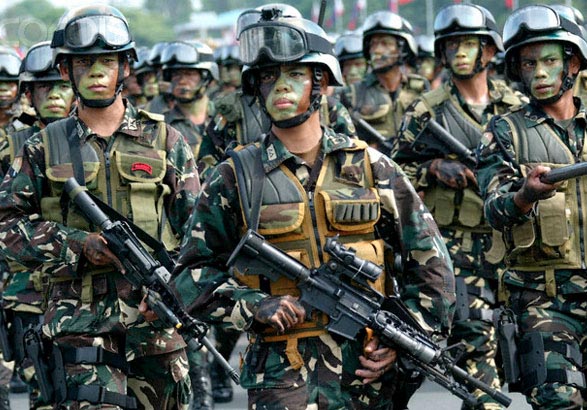
Sep 6, 2016
An opinion piece by Emerlynne Gil, ICJ Senior International Legal Adviser in Bangkok, Thailand.
At least 14 people were killed and 71 injured in the bomb blast that rocked Davao City, Philippines, in the late evening of 2 September 2016.
Attacks like the Davao bombing are serious violations of international law, and may constitute crimes under international law.
Immediately after the attack, President Rodrigo Duterte announced that he would be using his powers under the Philippine Constitution to deploy the Armed Forces of the Philippines (AFP, photo) “to prevent or suppress lawless violence”.
He used the term “state of lawless violence”, clarifying that the circumstances were such that they would apply to the entire country.
His spokesperson later further clarified that the President would use his Constitutional power to deploy the AFP so that the military could “assist the police to fight crime and violence”.
At this point in time, it is not clear whether the military will be deployed in law enforcement operations solely in the context of countering “terrorism” or whether they will also be used to counter crime and violence in general, including during operations conducted as part of the ongoing “war on drugs” which has killed hundreds of people so far.
Under Article VII Section 18 of the Constitution, President Duterte is empowered to resort to the deployment of the Armed Forces “to prevent or suppress lawless violence”.
President Duterte has vigorously explained that he is not calling for martial law.
Neither does it amount to declaring a state of emergency under Article VI Section 23(2) of the Constitution, a power vested upon Congress.
In any event, even in times of “a public emergency threatening the life of the nation”, there are certain human rights from which no lawful derogation is ever possible, such as the right to life, the right to a fair trial, and the prohibition of torture and cruel and inhuman treatment.
Under international law, it is the duty of the government of the Philippines to take all necessary steps to protect people from acts of terrorism.
In addition, the government has the obligation to bring to justice perpetrators of acts of terrorism, by prosecuting and holding accountable individuals or groups responsible for such acts, not only as a matter of national security, but also to protect the rights and personal security of everyone.
It should be emphasized, however, that whatever measures the Philippine government uses to counter terrorism, they must comply with international law, in particular international human rights and humanitarian law and standards.
Experience from around the world has shown clearly that strengthening the rule of law in line with human rights standards is the most effective and sustainable response to countering terrorism.
Whatever it may be, the announcement that the military would be deployed to assist the police to fight crime and violence is in itself very worrying.
Granting law enforcement powers to the military is always very dangerous, and threatens to breach international standards.
Indeed, a military approach to law enforcement has been proven in many instances to expose the public to a wide variety of serious human rights abuses.
As experienced in many countries, soldiers who have been given policing powers are frequently unable to shed the military paradigm.
This was noted by Christof Heyns, the UN Special Rapporteur on extrajudicial, summary, or arbitrary executions, in his 2013 report on the situation in Mexico where the armed forces were given law enforcement duties as part of the country’s crusade to quash the powerful drug cartels.
The military and police have fundamentally different approaches and roles in discharging their primary tasks.
The military’s raison d’être is subduing the enemy through the use of force, including lethal force.
Law enforcement and policing operations, on the other hand, must take place within and adhere to a human rights framework, where use of lethal force may only be justified when strictly unavoidable to prevent the taking of life.
Any government force engaging in law enforcement operations, regardless of the uniform they wear, are subject to the UN Basic Principles on the Use of Force and Firearms by Law Enforcement Officials—a set of rules that the police are generally trained to follow, but the military are not.
Instead of giving the military a task they are not suited for by involving them in law enforcement, the Philippines may benefit more, especially in the long term, if efforts are focused on strengthening the capacity of the police.
There should be more resources devoted to beefing up the police’s forensic investigation skills and resources, increasing the number of recruits, and giving them sufficient and specialized training in countering organized crime, including countering terrorism.
The capacity of other authorities, such as judges, prosecutors, and other justice officers, should also be strengthened.
Independent courts and prosecutors and a functioning justice system are essential in the context of fighting crime, including terrorism, while simultaneously upholding the rule of law and human rights.
An independent judiciary, most especially, plays a critical role in all of this since it serves as a necessary check on the government as it pursues its own vicious counter-narcotics and counter-terrorism campaign.
President Duterte should know that the duty of the Philippine government to protect people from acts of terrorism does not collide with its obligation to promote and protect human rights.
In fact, the promotion and protection of human rights is a key element in fighting terrorism and is an effective weapon in fostering lasting peace and building a strong democracy.
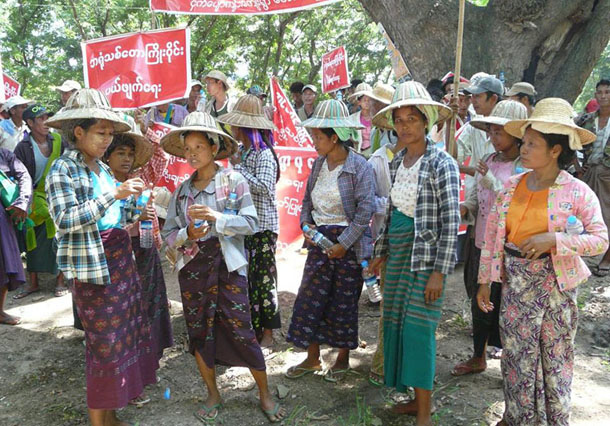
Aug 31, 2016
An opinion piece by Sean Bain, ICJ Legal Consultant in Myanmar.
In August, Myanmar’s newly elected Government overhauled the senior figures heading the administrative framework for governing Special Economic Zones.
Union Vice-President Henry Van Thio replaces former president Thein Sein as Chairperson of the SEZ Central Body, responsible for determining policies to promote foreign investment and rapid economic growth through the creation of SEZs.
One of his first tasks will be to select members for the SEZ Management Committees.
Each SEZ has a Management Committee with an extensive mandate to prepare development plans, propose projects, facilitate investment approvals and, crucially, coordinate resettlement for people displaced by projects in SEZs (picture).
Above these committees is the Central Working Body, where senior officials scrutinise project plans and develop policy advice for implementation. At the top sit the Union Ministers who make up the Central Body.
With the exception of the Thilawa Management Committee, these bodies have been inactive since the change of government in April.
The selection of Management Committees is an opportunity to appoint members who have a good knowledge of human rights law and environmental protection as well as investment law.
And to only select persons who are not tainted by corruption. This will be important to help ensure projects conform to human rights obligations and environmental laws.
And because the legal framework established by the 2014 SEZ Law is not clear enough to be administered in a straightforward manner.
Research by the International Commission of Jurists and others has found that Management Committees implementing SEZs have failed to protect the rights of people whose homes, land and livelihoods have been adversely affected by Myanmar’s three SEZs in Dawei, Thilawa and Kyauk Phyu.
In each SEZ, affected persons have been denied the right to access information about project plans, which the government failed to make transparent.
A lack of meaningful consultation has contributed to poor planning for resettlement, resulting in inadequate arrangements for compensation and livelihoods.
The impact for many has been deterioration in living standards. Under international law, the failure to protect people from deterioration in living standards generally amounts to a violation of rights to food, health and adequate housing.
The human right to an adequate standard of living is enshrined in the International Covenant on Economic, Social and Cultural Rights – which Myanmar has signed and is taking steps to ratify.
International standards, such as the World Bank Policy on Involuntary Resettlement, affirm that people displaced by development projects should be assisted to improve or at least restore their livelihoods to pre-displacement levels.
Management Committees have played a central role in managing the resettlement of communities affected by Myanmar’s SEZs.
But this role is not recognized in law, so there is no formal accountability in cases where committee members fail to protect the rights of affected communities.
Consider for example the provisions guiding the resettlement of people living in the SEZ area.
Article 80 of the SEZ Law requires companies to cover resettlement costs associated with their projects and to ensure that a displaced person’s living standards do not deteriorate.
With the Management Committee, the company should ‘coordinate…as necessary’, but under this Law the responsibility falls on the company, which does not have the protective human rights obligations of the State.
The Management Committee may be directing the process but the company could be held financially liable for substandard implementation.
Article 82 of the SEZ Law requires the Ministry of Home Affairs to take responsibility for land acquisition – another critical stage of any resettlement process.
But the Law does not clarify how the Ministry is to interact with the Management Committee and companies.
Overlapping duties among these actors has meant that duty-bearers are unsure of their duties while rights-holders are largely unaware of their rights.
To add to the confusion, the Law does not specify which of Myanmar’s more than 50 overlapping and conflicting land laws, each with different compensation arrangements, shall apply in SEZs.
This gives rise to inconsistent application of the law both within and across SEZs. A new land law based on the 2016 National Land Use Policy would help clarify this messy legal framework.
The lack of clarity regarding the role of the Management Committees reflects the general problem of uncertainty in many aspects of the SEZ Law, which is often vague, creating uncertainty about the roles and duties of different parties and worrying some investors.
Of particular concern to local residents is that the Law contains three chapters on investor’s benefits but does not mention human rights at all.
By assigning vague powers to authorities while omitting protections for affected communities, the Law codifies power imbalances in Myanmar.
This imbalance is aggravated by the general lack of accountability and access to justice for victims of human rights abuses in Myanmar.
The SEZ Law should be amended to clarify the duties of Management Committees including its obligations to respect, protect and fulfil human rights.
Investment revenues from SEZs should finance increased resources for the commissions and departments responsible for enforcing human rights and environmental standards.
These amendments are consistent with the government’s priorities of economic development in line with land rights, and should be considered before approving new investments in SEZs.
Reforming the SEZ Law would be a critical step toward ensuring that rights violations in SEZs are not repeated under the NLD’s watch.
In the meantime, the performance of SEZ Management Committees will significantly impact upon the ability of the Government to uphold its State duty to protect human rights and provide access to remedy for those living in the SEZ areas.
The Central Body must choose Management Committee members carefully.
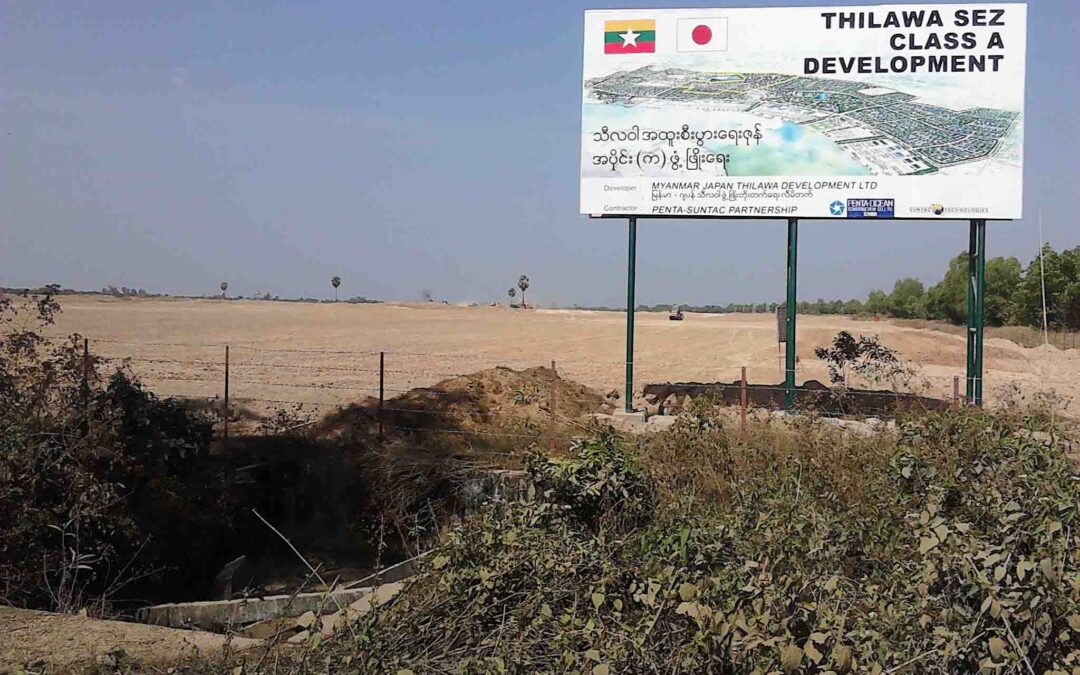
Aug 30, 2016
An opinion piece by Daniel Aguirre, ICJ International Legal Adviser in Myanmar.
This month the newly elected Myanmar government released its economic policy and announced that it will seek to attract even more foreign investment than under previous administrations.
But the new policy did not outline how it will ensure that foreign investment will contribute to the protection of human rights and sustainable development.
Myanmar’s previous military government was committed to investment protection treaties.
Will the new government follow suit? These treaties between States enable foreign investors to challenge new laws and policies by the host government – potentially including those protecting human rights and the environment – through international arbitration if they believe these may adversely affect their profits.
Foreign governments want their investors to benefit from the opening up of Myanmar’s economy.
Myanmar has already entered into investment protection treaties with Japan, South Korea, the Philippines, China, Laos, Vietnam, Thailand, Israel and India and is party to the ASEAN Comprehensive Investment Agreement. Myanmar is negotiating a new treaty with the European Union and exploring options with Singapore, among others.
These investment treaties grant investors equal standing with Myanmar’s government in disputes over national laws and policy in international arbitration.
Their broad provisions fail to reconcile investment protection with the host State’s right and duty to regulate for the benefit of human rights and sustainable development.
Myanmar must ensure that provisions on the treatment of foreign investors limit their rights to challenge legitimate, non-discriminatory, public purpose legislation.
Seeking to attract investment by giving foreign businesses more economic security should not compromise government’s ability to regulate in favour of the rights of its people.
Protection of investments must not be given priority over protection of human rights and the environment.
The UN Guiding Principles on Business and Human Rights urge governments to maintain adequate domestic policy space to meet their human rights obligations when pursuing investment treaties.
Before agreeing to further investment treaties, Myanmar should commit to adopting and enforcing new laws in line with international human rights and environmental standards.
It should evaluate whether these investment treaties are necessary to attract foreign investment to Myanmar.
It should follow the regional trend and revisit old treaties that empower foreign investors at the expense of local rights holders.
The National League for Democracy-led government came to power promising change, to establish the rule of law and to protect human rights.
In order to do so, the government will need to create new laws and policies in line with international laws and standards in the public’s interest.
For example, Myanmar has recently signed the International Covenant on Economic Social and Cultural Rights, signalling its willingness to put in place policies to progressively achieve universal healthcare, education and social security. These rights are also protected in Myanmar’s constitution.
But new policies designed to fulfil these rights may give rise to disputes under investment treaties.
For instance, it is possible that foreign investors will claim that a new policy on public health (for instance by requiring plain packaging for cigarettes) or minority rights (calling for affirmative action for minorities) or strict environmental protection standards (improved environmental impact assessment regulations) would harm their expected profits or other rights that are broadly defined in the investment protection agreement.
These are not outlandish examples. There are a number of cases where new laws and regulations passed by democratically elected governments have been challenged by foreign investors before arbitral tribunals.
In Canada, a foreign investor successfully challenged an environmental impact assessment board’s decision to deny it a permit and asked for more than US$100 million in damages.
Affirmative action policies in South Africa and environmental protection standards in Germany have been challenged.
Just the threat of arbitration can lead to a “regulatory chill”, forcing back public interest legislation and preventing environmental protection measures.
These are costly disputes – some arbitral awards run into the billions of dollars against host governments.
Recent challenges by tobacco giant Phillip Morris against Australian and Uruguay plain packaging cigarette laws, designed to protect public health, were unsuccessful but cost millions in lawyer’s fees.
Australia reportedly paid $50 million to defend its law. Myanmar cannot defend repeated challenges by deep-pocketed investors.
In Myanmar, this money could be better spent improving the dire state of health and education.
Around the world, people are demanding that negotiation and adoption of investment treaties be transparent; increasingly, people are opposing treaties that grossly favour the interests of investors over the interests of the public.
Investment treaties are often negotiated behind closed doors with little public or parliamentary oversight.
These are important decisions that impact on the rights of people in Myanmar.
Myanmar’s civil society has not yet had the opportunity to participate in genuine and informed consultation.
Many states have turned against international dispute resolution in investment treaties.
South Africa, Bolivia, Ecuador, Venezuela, and Indonesia have started to cancel or phase out existing treaties.
Others, including India, are reviewing current treaties and rethinking future negotiations.
Brazil, Russia, India and China are considering an alternative system that considers issues relevant to emerging economies.
The Indian government intends to replace existing investment treaties with new ones designed to balance investor’s interests, regulatory space and investor responsibilities.
It seeks to limit protections for foreign investors, drop controversial aspects of treaties and narrow the scope of others to reduce disputes.
While it allows access to international dispute settlement, foreign investors will have to pass through the domestic courts first.
The new investment treaties will also include an exhaustive list of economic, environmental and social measures to be exempt from challenge by foreign investors.
Myanmar would do well to follow this approach. Improving its human rights situation and maintaining sustainable development require sweeping legal reform.
The threat of costly legal challenges by foreign investors could dissuade policy makers from making necessary changes, discouraging them from fulfilling human rights and environmental obligations in order to promote investment.
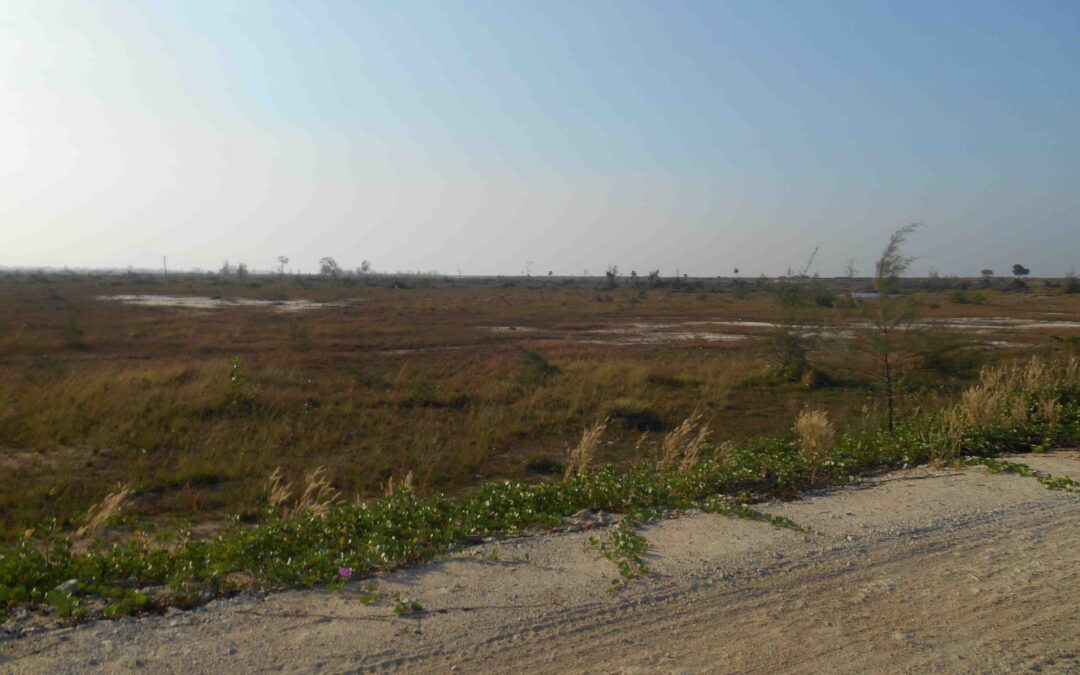
Aug 12, 2016
An opinion piece by Sean Bain, ICJ Legal Consultant in Myanmar.
Although Myanmar’s new civilian-led government has said little about the future of controversial, large-scale foreign investments, some projects are gaining ground without adequate public consultation and oversight.
Among them is the Kyaukphyu Special Economic Zone, a China-backed project in Rakhine State.
Communities affected by the development of the Kyaukphyu SEZ are concerned about speculators improperly buying-up land and are worried they will be displaced without due compensation.
This scepticism reflects recent bad experiences with infrastructure projects in the area, where officials reneged on commitments to comply with international standards on resettlement and compensation.
The ICJ has made several visits to Kyaukphyu over the past two years to monitor the human rights and environmental impacts of investment projects.
The ICJ has spoken with community groups, government and business.
As at the sites of the country’s two other SEZs, at Dawei and Thilawa, the ICJ has found that a lack of transparency is a key complaint of affected communities.
Since the National League of Democracy took office in April, the development of large-scale projects has slowed whilst the new government takes stock of Myanmar’s investment agreements.
Yet some of these projects are moving ahead – apparently without direction from the central government.
In the final months of its term, the Union Solidarity and Development Party government announced that the Chinese conglomerate, CITIC, had won tenders to develop an SEZ and build a deep-sea port at Kyaukphyu.
A corporate promotional video suggests the SEZ will create an investment and economic hub akin to Singapore in one of Myanmar’s poorest regions.
The port is expected to establish an alternate shipping route for Chinese trade by linking Yunnan Province with the Bay of Bengal – significant for China’s western provinces and for regional geopolitics.
An oil and gas pipeline completed in 2013 already connects Kyaukphyu with China.
Public access to information about the SEZ project remains scarce.
Research by the ICJ could not establish whether investment agreements have been finalised.
In the meantime, local authorities and project developers are moving forward with preparatory work for land acquisition and the resulting resettlement and livelihood changes for the local population.
The ICJ documented that when the NLD formed government, authorities were conducting land demarcation activities with an inter-departmental team in the Kyaukphyu area.
Plots and property were measured and documented, indicating preparations for future compensation.
Yet community members say they have received limited information about the purpose and method of this process.
Civil society groups have requested maps that collate this data but government officials have not made them available.
Residents recently told the ICJ that land prices are increasing as speculators buy plots in anticipation of future demand in the SEZ area. Farmers toiling in the fields may be unaware of the transactions.
Most don’t have land titles to sell, for a variety of reasons: Customary tenure is unrecognised; there were disincentives for land registration during the Socialist era; and would-be title holders continue to face barriers to registration, including corruption and laws that provide little protection and are poorly enforced.
These property transactions raise questions about who has the right to sell land and indicate that de facto land acquisition is occurring, despite a May 2016 Presidential Notification ordering a temporary halt to state land acquisitions.
Development of a new land law modelled on international standards and drafted in consultation with civil society was among 14 recommendations the ICJ recently made to the new government.
In southeast Myanmar, civil society groups investigating impacts of the Dawei SEZ documented that residents with insecure tenure sold land to speculators for prices below what they would be entitled to receive in an appropriate compensation process.
These sales reportedly occurred in response to pressure, coercion and misinformation from businesspeople in collusion with local authorities.
Depriving displaced persons of adequate compensation impedes their ability to re-establish livelihoods and results in violations of rights enshrined in the International Covenant on Economic, Social and Cultural Rights – that Myanmar has signed and the NLD has indicated it intends to ratify.
The Kyaukphyu project risks repeating these violations.
Access to remedy is severely limited because the judiciary lacks the independence, capacity and willingness to adjudicate conflict and disputes over land.
Authorities and investors associated with SEZs can and must mitigate these risks by immediately sharing plans with communities and establishing accessible lines of communication.
Over the past year CITIC has invested in reaching out to communities affected by the SEZ development. CITIC has offered community members microfinance and has began setting up vocational training opportunities.
These activities are efforts by CITIC to be a responsible investor in Myanmar. But these activities are not enough to satisfy the company’s legal obligations.
Companies are obliged to disclose project-related information in a timely manner and to arrange appropriate consultations that adhere to international standards.
Civil society and local leaders have told the ICJ that they hope future meetings with CITIC will be more inclusive and allow for genuine feedback and dialogue.
Myanmar’s Environmental Impact Assessment (EIA) Procedure, approved last December under the Environmental Conservation Law, requires developers to disclose timely project information with communities and civil society.
The procedure obliges developers to ensure that affected parties have opportunities to express their views and concerns before an EIA starts, as well as during and after the process.
The ICJ has encouraged CITIC to use the EIA as a chance to demonstrate its stated commitments to responsible investment in Kyaukphyu. It is also an opportunity for the government to exercise its regulatory right to protect human rights and the environment.
Communities have a right to timely information about project developments so they can participate in planning and make informed decisions about their future.
Transparency, access to information, and opportunities for genuine consultation and participation are principles of international standards such as the World Bank’s Policy on Involuntary Resettlement.
Through the EIA Procedure, Myanmar law requires that developers of major projects adhere to these standards.
In Kyaukphyu, the NLD government has an opportunity to enforce social and environmental safeguards for investment projects.
This is not without challenges: under the SEZ Law, responsibility for land acquisition is conferred to the military-controlled Ministry of Home Affairs. But the NLD now gets to appoint officials responsible for project approvals.
The NLD will also determine the composition of the peak body for SEZ implementation in Myanmar.
These new powers must be used to ensure that any displacement occurs only when absolutely necessary, and through a process consistent with international standards.
Whilst the NLD government continues to review investment agreements, in Kyaukphyu the situation is transforming.
Affected communities require transparent access to information, genuine consultation and opportunities to participate in decision-making.
The government and developers must immediately demonstrate stated commitments to responsible investment in Myanmar by applying democratic principles of timely and meaningful transparency and consultation.
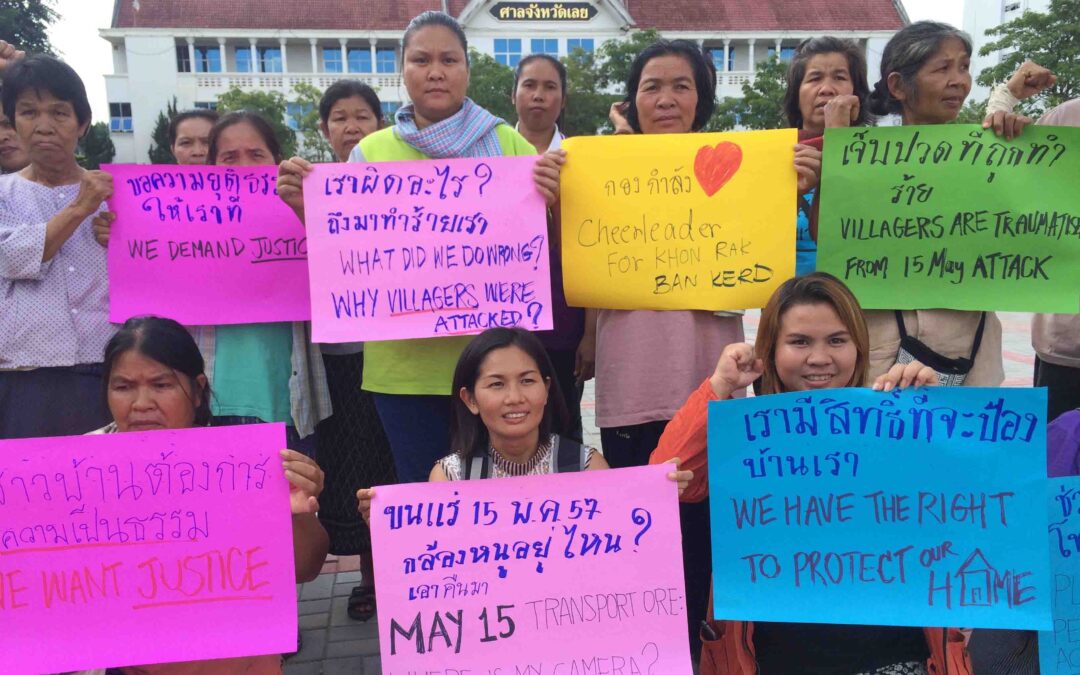
Jun 5, 2016
An opinion piece by Kingsley Abbott, ICJ Senior International Legal Adviser for Southeast Asia and Sutharee Wannasiri, a Thailand Human Rights Specialist with Fortify Rights.
Late in the evening of 15 May 2014, more than 100 men, most of them armed and wearing black masks, stormed a small village in Loei Province, northeast Thailand and assaulted more than a dozen men and women who oppose a local copper-gold mine.
After testing in 2007 showed contamination of the local water supplies, villagers in six communities surrounding the mine in Loei Province formed a network—Khon Rak Ban Kerd Group (KRBKG)—to advocate for the mine’s closure and rehabilitation of the local environment.
The communities went so far as to barricade the road to the mine in 2014. That’s when the armed men arrived, unlawfully detaining scores of villagers and injuring at least a dozen in a fit of violence that lasted six hours.
Despite the villagers’ calls for help, no police intervened.
Only two of more than 100 assailants were brought up on criminal charges for the attack: a retired Royal Thai Army officer and his son, who is still serving in the Army.
On 31 May 2016, the Loei Provincial Court convicted the two military personnel on criminal charges including causing bodily harm, deprivation of liberty, and the unnecessary use of firearms in public.
They were sentenced to just under two years and three years’ imprisonment, respectively, and ordered to pay nine villagers more than 160,000 Thai Baht (US$4,475) in compensation. The two men have been released on bail.
The company operating the gold mine—Tungkum Ltd.—has vehemently denied wrongdoing and has brought at least 19 criminal and civil complaints against villagers protesting the mine, including most recently a criminal defamation complaint against a 15-year-old girl who narrated a Thai PBS broadcast that touched on the question of the gold mine and the environment.
Sadly, this has been the pattern of “development” in Thailand. Throughout the country, communities face threats, violence, and judicial harassment.
Consider the situation in Surat Thani Province. In the early afternoon of 8 April 2016, an unidentified gunman opened fire on land-rights activist Supoj Kansong as he returned home in his vehicle in Chaiburi District.
He sustained serious injuries in the attack and was fortunate to survive.
But other land-rights activists have not been as fortunate.
Supoj Kansong is the fifth member of the Southern Peasant Federation of Thailand (SPFT)—a group advocating for the land rights of farmers who are in a dispute with the Government and a palm oil company operated by Thai-owned Jiew Kang Jue Pattana Co., Ltd–to have been attacked since 2010.
Four members were shot and killed. To date, only one man faced trial for one of the four killings. He was acquitted.
More recently, in March 2016, Akara Resources Public Company Limited, a Thai gold mining subsidiary of the Australian firm Kingsgate Consolidated Limited, filed complaints of criminal defamation against two human rights defenders who opposed the company’s mining operations in Pichit Province and allegedly posted negative comments about the company on Facebook.
On Thailand’s western border in Tak Province, on 15 May 2015, Thai authorities ordered members of the Mae Sot Rak Thin Group—a network of villagers in Mae Sot District—to vacate their land to make room for the Government’s plan to develop a Special Economic Zone.
Villagers told us that state security forces blocked them from submitting complaints about the eviction to the authorities on multiple occasions.
In all these cases, human rights defenders demanding justice are being sidelined and silenced.
But Thailand has a legal obligation to protect all human rights defenders from retaliation for exercising their rights.
On 17 December 2015, Thailand joined 127 other states at the UN General Assembly in adopting a UN Resolution on human rights defenders.
The Resolution calls upon states to refrain from intimidation or reprisals against human rights defenders and to allow for the peaceful and free expression of dissent.
It calls upon businesses to respect the rights of human rights defenders and to identify and address any adverse human rights impacts related to their activities through meaningful consultation with potentially affected groups and other relevant stakeholders.
In addition, in May 2016, Thailand accepted recommendations from six UN member states related to protecting human rights defenders during its Second Universal Periodical Review at the UN.
Thailand agreed to promptly and thoroughly investigate reports of intimidation, harassment, and attacks against human rights defenders and to hold perpetrators accountable.
Thailand’s support for these principles on the world stage is heartening, but it means little without concrete action at home.
Thailand has a long way to go to ensure its international obligations are met and human rights defenders are protected.
As a start, Thailand should guarantee access to effective remedies and reparations for individuals and communities whose rights have been violated.
The Government should ensure that meaningful legal frameworks are available and effectively implemented to facilitate the Free, Prior, and Informed consent of local communities with regard to development projects, and it should ensure companies are held accountable for any environmental damage and human rights abuses.









